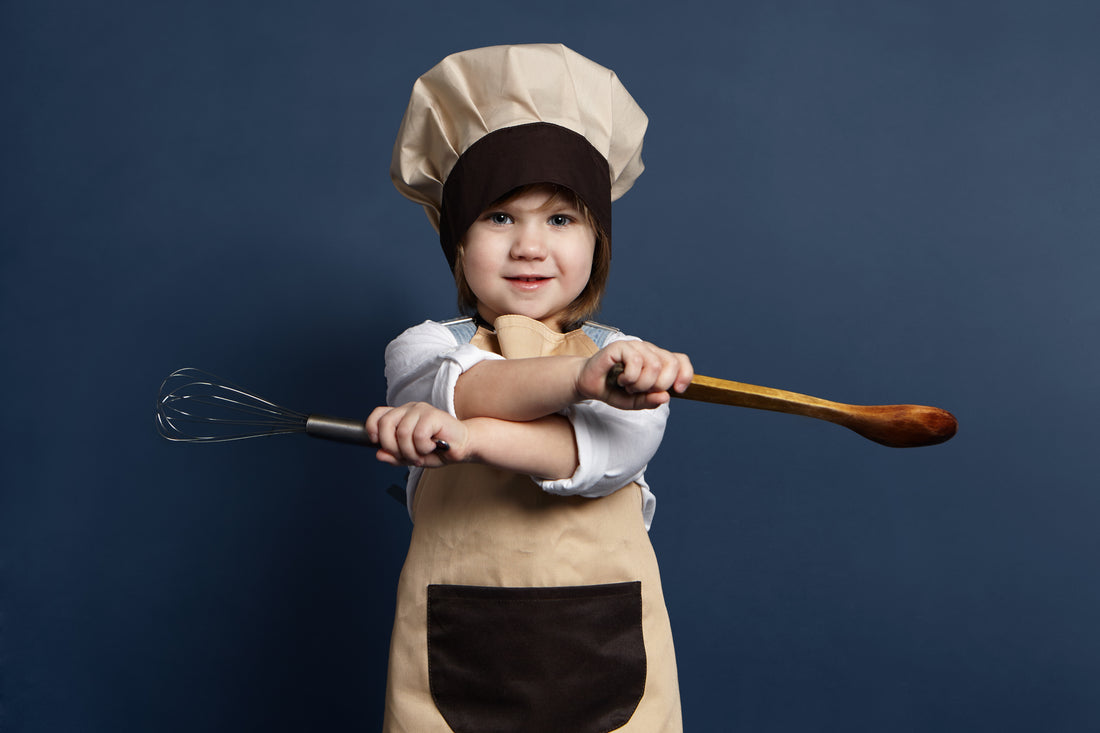
No Chefs Allowed: Why You Don’t Need to Be a Chef to Make a Great Home Cooked Meal
Share
Cooking can often seem intimidating. Between complicated recipes, sophisticated techniques, and endless cooking shows, it’s easy to feel like you need to be a professional chef to make a delicious meal. But here’s the truth: cooking at home is more accessible than most people think. The key is understanding a few simple concepts and trusting yourself in the kitchen. You don’t need to have formal training to create a great meal that impresses friends and family.
Let’s break down why you don’t need to be a chef to make a flavorful, satisfying home-cooked meal—and how you can approach cooking with more confidence, no matter your experience level. Read on for some pro tips, like using a pre-measured spice blend, and some advice, like how to free yourself up to cook without a recipe.

Home Cooking Isn’t as Complicated as It Seems
The truth is, most meals are built on straightforward techniques that anyone can learn. While chefs use advanced methods, home cooks don’t need to. Here are a few reasons why cooking at home is simpler than it seems:
- Heat and timing: Most meals involve applying heat to transform ingredients. Whether you’re sautéing vegetables, roasting chicken, or boiling pasta, the process is about controlling heat and paying attention to timing. These are skills anyone can master with practice.
- Fresh ingredients: Start with fresh, quality ingredients, and you’re already halfway there. When you use fresh vegetables, proteins, and grains, your meal will naturally taste better. You don’t need an elaborate pantry or rare spices to make your food delicious.
- Simple methods: Basic cooking techniques like roasting, grilling, and sautéing are easy to learn and apply to a variety of dishes. Maybe you’re already Captain Barbecue, or you have a solid stir-fry game, you can apply your mastery to another technique. Being confident in any cooking method means you can easily make most home-cooked meals.

The good news is home cooking is forgiving and adaptable. You don’t need to follow strict rules or have expensive gadgets to succeed. Most mistakes are fixable, and even “imperfect” dishes are still perfectly edible—and often delicious!
Flavor Is Key—But You Don’t Need to Be a Pro to Get It Right
One of the most common challenges for home cooks is figuring out how to season food properly. Achieving the right balance of herbs and spices can seem tricky, especially if you’re new to cooking. But don’t let this discourage you—seasoning doesn’t have to be difficult.
Here’s what to keep in mind when it comes to flavor:
- Basic flavor building: Salt, fat, acid, and heat are the core components of flavor. If you can balance these elements, you’ll create a delicious meal. Salt enhances flavor, fat adds richness, acid (like lemon juice or vinegar) brightens the dish, and heat controls the cooking process.
- Don’t be afraid of seasoning: One of the biggest mistakes new cooks make is under-seasoning. Adding enough salt, pepper, herbs and spices can transform your dish from bland to flavorful. Start small, taste often, and add more as needed.

- Pre-mixed seasonings and spice blends: If you’re unsure about combining spices, there’s an easy solution: pre-mixed spice blends. Dishes already require a certain amount of chopping and prep. Spice blends are crafted to provide balanced, full-flavored seasoning in one step, so you don’t need to worry about measuring or matching herbs and spices yourself. They’re a great option for home cooks who want foolproof flavor without the guesswork.
Trust your palate: We all have slightly different tastes, and that’s okay! Don’t be afraid to experiment with sauces, seasonings and different flavor combinations. Taste as you go and adjust based on what you like. Cooking is personal, and you don’t need a perfect recipe to enjoy a great meal.

Cooking Without Recipes
Another misconception is that you always need to follow a recipe to the letter to create a delicious meal. While recipes are helpful guides, they’re not rules you have to stick to strictly. In fact, learning how to cook without relying on recipes can boost your confidence in the kitchen. Here’s why:
- Freedom to experiment: Recipes are suggestions, not strict guidelines. You can adjust them based on what ingredients you have or what you prefer. If a recipe calls for an herb you don’t have, feel free to swap in another or leave it out altogether. If you like more spice, add it!
- Focus on technique: Once you master basic cooking techniques—like roasting, grilling, or sautéing—you can apply them to almost any ingredient. The more you practice these skills, the less you’ll need to rely on recipes. Instead, you’ll start cooking based on what looks good at the market or what’s in your pantry.
Flavors you love: Cooking without a recipe also lets you focus on the flavors you enjoy most. Instead of being tied to a specific dish, you can get creative by combining flavors in new ways. Over time, you’ll develop a sense of what works and what doesn’t, making meal prep more fun and intuitive.

Confidence in the Kitchen
Building confidence in the kitchen is all about letting go of the fear of failure. Every cook, even a professional, makes mistakes. What sets experienced cooks apart is their willingness to experiment and their understanding that most cooking mishaps can be corrected. Overcooked something? Add a little sauce to moisten it up. Didn’t add enough salt? Season it after cooking.
Cooking is a skill that improves with practice, and the more you cook, the more comfortable you’ll become. Don’t worry about making every dish perfect—just focus on learning, having fun, and enjoying the process.
